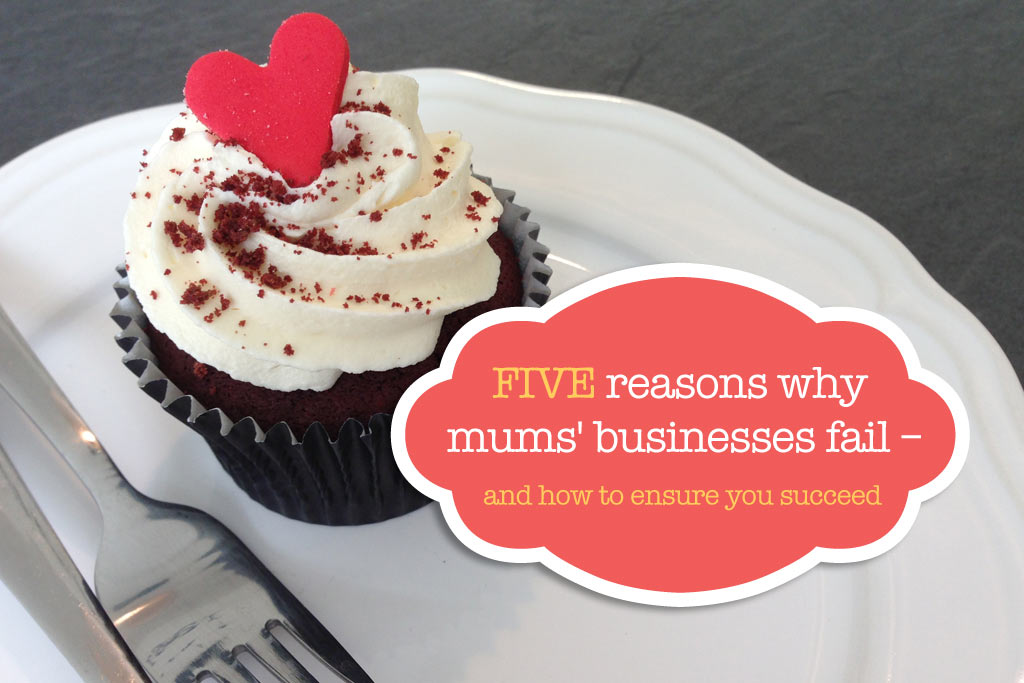Five ways to cope with failure – and come out winning!
Failure on some level is an inevitable part of starting your own business – and can even help your business (and you) to grow. Read five ways to cope with failure and come out winning.
Digital entrepreneur Rachel Hill shares her personal experiences of failure, and how she has turned failure into a positive.
Failure is the key to success
This may seem like an odd opener to a positive business article, but I really believe the wise words of Thomas Watson, President of IBM: “The key to success is massive failure.”
In other words, you have to work through the discomfort to get past the pain barriers which eventually lead to success. There is no other way.
Getting things wrong is very much a part of achieving success and is acknowledged by entrepreneurs as one of the most important learning curves.
Yes, it is uncomfortable at times. But you need to view your experiences of failure as ‘bricks in the wall’ upon which you are building the solid foundations of your new and exciting future. This is what sets you apart from everyone else. That’s also why 1% of the population owns more than half of the world’s wealth.
What doesn’t kill you makes you stronger
I have encountered failure on many occasions. When I got a top law degree from Manchester University, followed by a postgraduate qualification, I thought I was set for life. But I was wrong.
Instead I found myself unable to secure a training contract in the North West of England where I wanted to remain due to family commitments. I got close a few times and on one occasion I reached the last 12 out of 3,500 applications. But I ended up on the reserve list and didn’t make the last cut.
That one hurt, believe me. In the end, I waited more than 10 years before I was able to train as a solicitor while continuing to work within the legal sector doing soul-destroying work for ridiculously low salaries.
Rejection followed rejection
In my spare time, I also wrote several books from the late 1990s onwards and, despite numerous attempts, I was unable to secure an agent or a publishing deal. Rejection letter followed rejection letter (you get the picture). However, I didn’t let that get in my way and in the end, Amazon Publishing meant I could cut out the middleman and self-publish my tuition book.
I have another fictional book which I plan to release on Amazon shortly so, in the end, I got where I wanted but just using a different route to the end destination.
The moral of the story is that you should never give up. That’s what separates the entrepreneurs out there from everyone else; they always try to find a new way to do something.
Five ways to cope with failure – and come out winning
It’s all well and good telling you that I’ve had my fair share of failure. I’d also be lying if I told you I’d handled it well when I was much younger than I am now.
So, how do I deal with it? Well, I suppose if I was to write a letter to my younger self about how to deal with failure, I would share five pieces of hard-earned wisdom.
1) Think of failure as a chance to learn
Try to think of failure as an opportunity to grow and learn. Be more like a child in this respect. Children want to win when they play games and just because they stumble and fall or lose the first time round doesn’t mean they will give up. But somewhere along the line we lose that childlike desire to win and hustle.
As adults, we expect everything to happen right now. This is made worse because we live in an ‘on demand’ society with the internet providing immediate solutions.
We can watch a programme or film whenever we want, we can stream music without going to a shop to buy it and we can order virtually anything on Amazon by just clicking one button. However, none of us could walk or talk when we were born; they were skills that took time to acquire and master, so don’t quit. Failure is part of mastery and I’m afraid mastery cannot be bought ‘on demand’.
2) Treat failure as an asset
Remember what Thomas Edison (inventor of the commercial light bulb) once said: “I have not failed. I’ve just found 10,000 ways that don’t work.”
In other words, think about failure as a valuable and necessary part of your journey to mastery. Treat it as an asset. If we didn’t have failure then we would never appreciate success, which is ultimately what drives us on to do more in terms of providing value for others and ourselves.
A while ago, I took the very painful step of having my fictional novel professionally critiqued by a published author. Being honest, I couldn’t even bear to read the comments until two years later. When I did, I realised they weren’t all that bad after all and they really helped me see the wood from the trees in terms of what had worked and what definitely hadn’t.
Failure doesn’t have to be catastrophic: it can help us frame the situation and put things into perspective. Those learning curves are bricks in the wall and make you more valuable as a person. One day, your learning curve experiences could earn you money and help a new audience of customers.
3) Don’t fail alone
Don’t pursue your journey alone. I’ve tried this (being a very typical only child!) and I must admit that I was wrong. Totally, completely and utterly wrong. Being part of a community that shares your passion is an excellent way of not only realising that you’re not the only one. It also highlights ways and means of finding a solution to your problem.
I think it’s wise to be answerable to someone else, like a mentor, when you’re experiencing a difficult journey, whether it’s a new career or your own business. There are lots of communities out there on Facebook, for example, just looking to connect people in similar circumstances to yours.
4) Focus on your goal – not on your failings
Know where you’re going in terms of goals and intentions. As a private tutor, I always tell my students that when they’re writing a story, they should know how it ends before it begins.
This means that they can guide the story like a plane making its descent and landing on the runway (and not the fields or motorway to the side) so it’s exactly where it needs to be. It’s the same in life and business.
It’s also true when they say that what you focus on expands. In other words, if you choose to dwell on failure then negativity will swamp you and eat away at your confidence. Yes, I have been there and I’ve cried a lot of tears too which achieved precisely nothing except a banging headache.
On the other hand, if you choose to think about how you’re going to improve the situation, there is automatically a paradigm shift in your thinking which creates a more positive feel and spin to what’s happening.
Yes, it may have taken me two years to look at the critique I received on my writing, but I did come back to it with a positive frame of mind and with an understanding that I was learning and mastering the skills required of a professional author.
5) Celebrate the little wins
While you work towards your big goal, it’s also important to have things to look forward to along the way, and to celebrate your small successes.
I’ve always been my own worst critic and I think that in this day and age when so much is expected of our time and resources, we should congratulate ourselves on our achievements.
We should also factor in little treats and not punish ourselves for not achieving everything we wanted 100% perfectly. Sometimes, just good enough is perfection (I believe that perfection is always flawed). That’s just life – perfection lives inside a Disney film, not in real women’s lives.
Recently I learned how to use a new advertising platform that completely threw me for quite a few weeks. I will admit to being close to tearing my hair out… however, I persevered and am now getting results.
It could be something as simple as learning a new shortcut on your laptop or being able to advise someone else on something you have already learned to do well. Sometimes, it really is those ‘easy wins’ that put stuff back into perspective and fire you up to just keep on going. And keeping on going, just doing something positive to move forward every single day, is exactly what is needed to pave your journey to success.
Want to learn more about starting your own business? Find out how Rachel can help you here.










